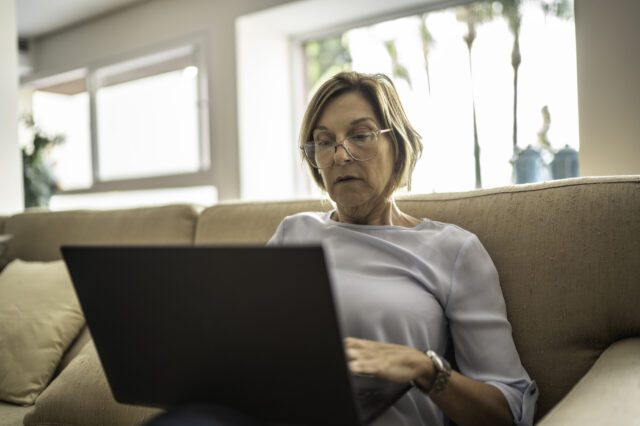UF Health project seeks to measure impact of coronavirus isolation on older adults

Many Americans are facing troubling emotional and lifestyle consequences of the self-isolation necessitated by the novel coronavirus pandemic. Lack of contact with friends and family. Loneliness and depression. Diminished exercise.
Those consequences might be magnified in a vulnerable population such as older adults.
A University of Florida Health researcher has launched a study using an online survey to determine the impact of the coronavirus pandemic on the lives of older adults. The results could eventually help scientists target educational, policy and behaviorial interventions designed to regain or modify the life activities of older adults after the health crisis abates.
“A part of this is a discovery process,” said Todd Manini, Ph.D., an associate professor and faculty member in the UF Institute on Aging and the study’s principal investigator. “We’re trying to understand the trends over time as the pandemic continues to evolve. It’s a unique circumstance to look at the impact of being in a world with limited human contact.”
The pandemic is the biggest health emergency in a century, and the lessons learned during this crisis will become part of the toolbox available to scientists were another pandemic to occur.
“We’re taking the pulse of this population of older adults,” Manini said.
The survey includes 200 questions and takes 30 to 45 minutes to complete. Anyone age 20 and older is eligible to participate, Manini said, but researchers will make extra effort to reach older adults through mailings to tens of thousands of Floridians over the age of 65. Visit https://is.gd/surveycovid to access the survey.
Participation is voluntary and anonymous. Researchers will not be able to view any identifiers, including a participant’s email address. Survey answers cannot be linked to any individual.
Many survey questions seek to determine whether the pandemic has changed the respondent’s behavior. Have participants stopped taking medication due to news coverage of COVID-19, the disease caused by the coronavirus? Have they considered using telehealth? Has the pandemic changed someone’s view of telehealth? How often do they visit places outside the home? What about exercise?
Questions also focus on a person’s emotional condition. Did they ever feel helpless before the outbreak? And how has that changed since the coronavirus emerged? Similar questions target depression, anxiety, worry and sleep, among other things.
“I want to know the impact on loneliness, which is a risk factor for lots of health conditions,” Manini said. “I want to know if seniors are now more likely to use technology, mobile technology, iPads, iPhones, smart technology, Facetime. I want to know if COVID-19 has changed people’s perception of using telehealth, and if they’re more or less likely to use telehealth after the pandemic. I want to understand how media exposure is correlated with people’s anxiety about COVID-19.”
Manini hopes to conduct follow-up surveys to learn how respondents have changed. This could provide scientists with insights on changing behavior. For example, is their discomfort using technology a barrier to using telehealth? That could be addressed with some sort of intervention, Manini said.
Over time, he might find that older adults continue to isolate themselves even after society opens up. What are their fears? And how can they be addressed?
Manini said this is an important moment to gauge the effects of the pandemic.
“We’re at a unique place in time where we can study how loneliness, social isolation, anxiety, depression change over time as the pandemic kind of rides out,” he said.
About the author
